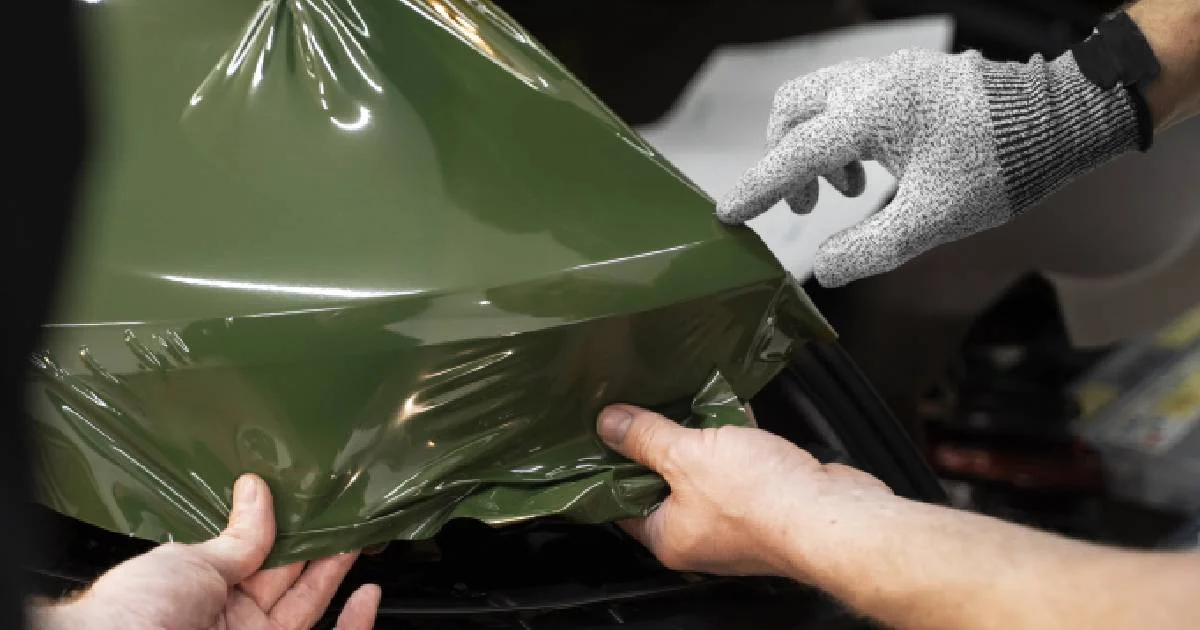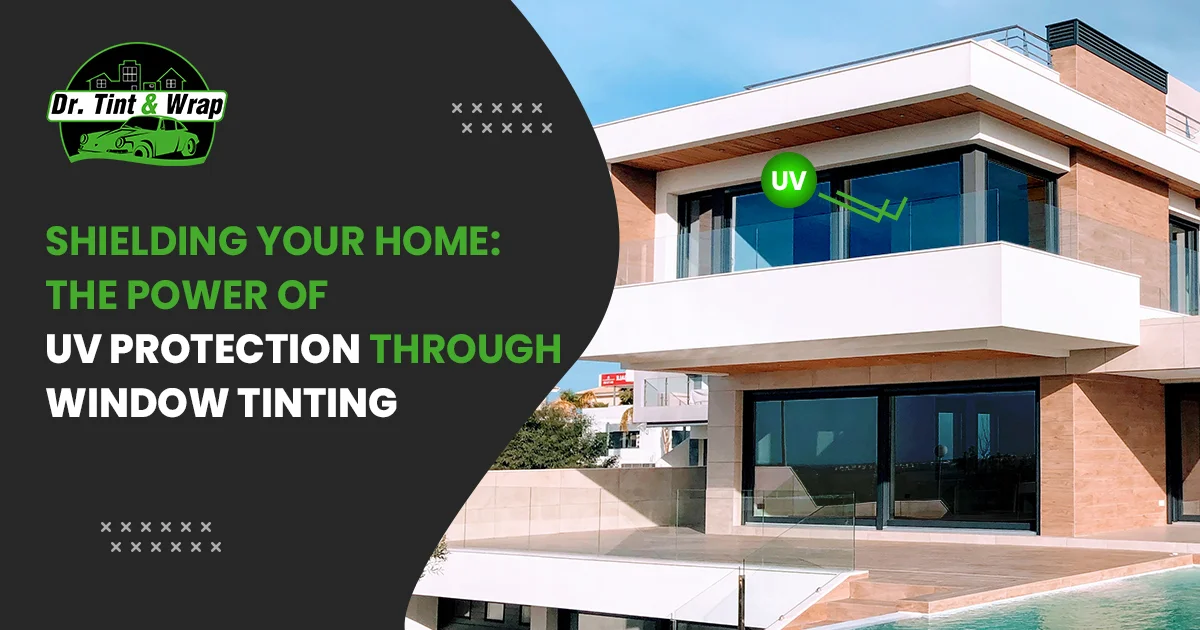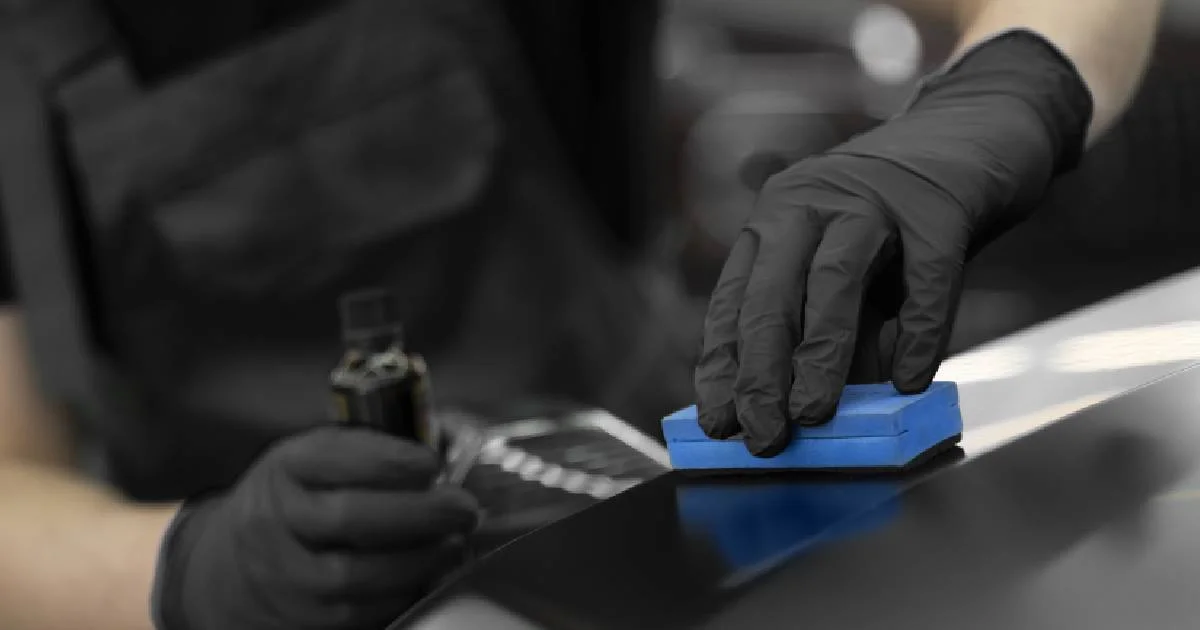
How Long Does Car Wrapping Last
10 Feb 2024, By AdminIntroduction
Car wrapping has become an increasingly popular method for vehicle customization, allowing car owners to express their style and protect their vehicles' original paint. However, like any automotive enhancement, car wrapping is not a permanent solution. In this blog, we'll delve into the factors that influence the longevity of car wrapping and answer the burning question: How long does car wrapping last?
Understanding Car Wrapping
Car wrapping involves applying a thin, adhesive vinyl film to the exterior of a vehicle. This vinyl can come in various colors, patterns, and finishes, providing car owners with a versatile and cost-effective alternative to traditional paint jobs. Car wrapping is known for its ability to protect a vehicle's paint from scratches, stone chips, and other environmental damage while allowing for easy removal or color changes.
Factors Influencing Car Wrap Longevity
- Quality of Materials: The longevity of a car wrap heavily depends on the quality of the materials used. High-quality vinyl films with UV-resistant properties tend to last longer and maintain their appearance over time. Cheaper, low-quality materials may deteriorate more quickly, leading to premature discoloration and peeling.
- Installation Skill: Proper installation is crucial for the durability of a car wrap. Professional installers with experience and skill ensure that the vinyl adheres uniformly, avoiding air bubbles, wrinkles, and edge lifting. Poor installation can significantly reduce the lifespan of the wrap.
- Environmental Factors: The environment in which a vehicle is driven and parked plays a vital role in how long a car wrap lasts. Harsh weather conditions, exposure to extreme temperatures, and prolonged sunlight exposure can accelerate the wear and tear of the vinyl. Regular exposure to elements like salt, bird droppings, and tree sap can also affect the wrap's longevity.
- Maintenance and Care: Proper maintenance and care are essential for maximizing the lifespan of a car wrap. Regular washing with mild soapy water, avoiding abrasive cleaners, and keeping the vehicle sheltered when possible can contribute to preserving the wrap's appearance.
- Intended Use: The intended use of the vehicle can impact the longevity of the car wrap. Vehicles used for daily commuting and exposed to heavy traffic may experience more wear than those used less frequently. Similarly, off-road or adventurous driving may increase the likelihood of damage to the wrap.
Signs of Aging and When to Replace
- Fading: One of the most common signs of an aging car wrap is color fading. This is often a result of prolonged exposure to sunlight.
- Peeling or Lifting: If the edges of the wrap start to lift or peel, it's an indication that the adhesive is losing its effectiveness, and the wrap may need replacement.
- Cracking or Wrinkling: Over time, the vinyl may develop cracks or wrinkles, affecting both the aesthetic appeal and the protective function of the wrap.
How long does car wrapping last?
Car wrapping longevity depends on various factors.
What signs indicate that a car wrap needs replacement?
Signs that a car wrap may need a replacement include:
- Fading: If the colors on the wrap start to fade or lose vibrancy, it may be time for a replacement.
- Peeling or Bubbling: The appearance of bubbles or peeling edges indicates that the adhesive is failing, and the wrap needs attention.
- Cracks or Tears: Physical damage, such as cracks or tears in the vinyl, compromises the effectiveness of the wrap and may necessitate replacement.
- Loss of Gloss: If the wrap loses its glossy finish and becomes dull, it may be a sign of wear and tear.
How much does it cost to replace a car wrap?
The cost of replacing a car wrap depends on various factors, including the size of the vehicle, the complexity of the wrap design, and the quality of materials used. On average, you can expect to pay a few thousand dollars for a full wrap replacement.

Shielding Your Home: The Power of UV Protection Through Window Tinting
10 Feb 2024, By AdminIn the pursuit of creating a cozy and inviting home, we often invest in exquisite furniture, delicate fabrics, and beautiful artwork. However, while we bask in the warmth of sunlight filtering through our windows, we might unknowingly subject our prized possessions to potential harm. Ultraviolet (UV) rays, invisible but potent, can cause irreparable damage to our furniture, flooring, and other cherished items. Fortunately, there's a simple yet effective solution – window tinting. In this blog, we'll explore the significance of UV protection through window tinting and how it preserves the integrity of your home.
Understanding the Threat: UV Rays
UV rays, a component of natural sunlight, are notorious for their ability to fade and deteriorate materials over time. Wood, fabric, leather, and even artwork are vulnerable to the harmful effects of prolonged exposure. Traditional windows offer little defense, allowing these rays to penetrate and wreak havoc on your interiors. This is where window tinting steps in as a guardian, forming an invisible shield against these damaging rays.
The Role of Window Tinting: A Protective Barrier
- Preventing Fading: One of the primary benefits of window tinting is its capacity to reduce fading. Tinted windows block a significant portion of UV rays, ensuring that your furniture and flooring retain their vibrant colors and textures for a more extended period. Say goodbye to the washed-out hues and say hello to long-lasting elegance.
- Preserving Fabrics and Upholstery: Fabrics, especially those found in curtains, upholstery, and rugs, are highly susceptible to UV damage. Window tinting safeguards these textiles, prolonging their lifespan and maintaining their luxurious appeal. Your curtains will stay rich and your upholstery will remain plush, all thanks to the protective tint.
- Safeguarding Art and Valuables: Artwork and valuable items, such as antique furniture or delicate ornaments, deserve special care. Window tinting acts as a shield, allowing you to display your treasures without fear of deterioration. Your art collection will stay vivid, and your valuables will maintain their allure, enhancing your home's aesthetics for years to come.
The Added Benefits: Beyond UV Protection
- Energy Efficiency: Window tinting not only protects against UV rays but also improves your home's energy efficiency. By blocking excessive heat during summers and retaining warmth in winters, tinted windows contribute to a more comfortable living environment and reduced energy bills.
- Enhanced Privacy and Security: Tinted windows offer enhanced privacy, making it difficult for prying eyes to peer inside. Additionally, they reinforce your home security, acting as a deterrent against potential intruders.
Conclusion
A Brighter, Safer Tomorrow In the battle against the invisible menace of UV rays, window tinting emerges as a reliable ally. By investing in quality window films, you not only protect your furniture, flooring, and cherished possessions but also create a more energy-efficient, secure, and private home. Embrace the transformative power of window tinting, and let your home shine brightly while staying shielded from harm. Remember, a small step today can lead to a brighter, safer tomorrow for your home and everything within it.

Car Window Tinting: Is It Worth the Effort in Tauranga?
10 Feb 2024, By AdminWhen it comes to enhancing the overall look and functionality of your vehicle, car window tinting is an option that many Tauranga residents consider. Not only does it give your vehicle a sleek and stylish appearance, but it also offers several practical benefits. However, before diving into this automotive upgrade, it's essential to understand whether car window tinting is worth the effort in Tauranga. In this blog post, we will explore the advantages of car window tinting specific to Tauranga's climate and lifestyle.
1. Protection from Harsh UV Rays
Tauranga, known for its beautiful beaches and sunny weather, experiences intense ultraviolet (UV) radiation. Car window tinting provides a protective barrier against harmful UV rays, shielding both you and your vehicle's interior. By blocking a significant portion of UV rays, tinted windows can help prevent interior fading, cracking, and discolouration. Additionally, it protects your skin from UV exposure during those long drives around Tauranga.
2. Temperature Control and Comfort
Tauranga's climate can be quite hot and humid, especially during the summer months. Car window tinting helps regulate the interior temperature by reducing the amount of heat that enters the vehicle. This, in turn, eases the burden on your air conditioning system, making it more efficient and reducing fuel consumption. With cooler interiors, you can enjoy a more comfortable driving experience, even on scorching Tauranga days.
3. Glare Reduction for Safer Driving
Glare from the sun can be a significant hazard when driving, leading to eye strain and reduced visibility. Car window tinting reduces glare by filtering out excessive sunlight, ensuring clearer visibility of the road ahead. With improved vision, you can navigate Tauranga's roads with increased safety, particularly during sunrise and sunset when the glare is most intense.
4. Enhanced Privacy and Security
Privacy is an important aspect for many vehicle owners. Window tinting provides an additional layer of privacy, preventing prying eyes from seeing inside your car. This is especially beneficial when parking in busy areas or when you have valuable belongings in your vehicle. Additionally, tinted windows can deter theft by making it harder for potential burglars to identify valuable items inside your car.
5. Upholstery and Interior Preservation
Tauranga's sun and heat can take a toll on your vehicle's interior. Prolonged exposure to sunlight can cause fading and cracking of upholstery and dashboard materials. Car window tinting helps protect your vehicle's interior by blocking harmful UV rays and reducing heat buildup. By preserving the quality of your interior, window tinting can help maintain your car's resale value in the long run.
Considering the unique climate and lifestyle in Tauranga, car window tinting proves to be a worthwhile investment. The benefits it offers, including protection from UV rays, temperature control, glare reduction, enhanced privacy, and interior preservation, make it an appealing choice for vehicle owners in Tauranga. Whether you want to improve the aesthetics of your car

How Much Does A Ceramic Coating Cost?
10 Feb 2024, By AdminIn recent years, automotive enthusiasts and car owners alike have been raving about the benefits of ceramic coatings. This revolutionary protective solution has gained popularity for its ability to enhance a vehicle's appearance and provide long-lasting protection. However, one common question that often arises is, "How much does a ceramic coating cost?" In this blog, we will delve into the factors influencing the cost of ceramic coatings and help you understand what to expect when considering this investment for your vehicle.
Understanding Ceramic Coating
Before we dive into the cost, let's briefly understand what ceramic coating is. Ceramic coating is a liquid polymer applied to the exterior surfaces of a vehicle. Once cured, it forms a protective layer that shields the paint from various environmental contaminants such as dirt, bird droppings, UV rays, and more. The result is a glossy finish and enhanced durability that can last for several years.
Factors Influencing Cost
- Type of Ceramic Coating: The market offers a range of ceramic coatings with varying quality and durability. Entry-level coatings may be more affordable, but they might not offer the same level of protection as high-end options. Premium ceramic coatings often come with advanced features such as self-cleaning properties and increased resistance to harsh elements.
- Brand Reputation: Established and reputable brands in the ceramic coating industry tend to charge higher prices. This is often because they invest heavily in research and development to create cutting-edge formulations that outperform their competitors.
- Professional Application vs. DIY Kits: Another significant factor in the cost of ceramic coating is whether you opt for professional application or a do-it-yourself (DIY) kit. Professional application by certified detailers can be more expensive, but it ensures a high-quality and precise coating. DIY kits are generally more affordable but may not provide the same level of expertise and longevity.
- Preparation and Correction: The condition of your vehicle's paint before applying the ceramic coating can also impact the overall cost. If your car requires extensive paint correction, which involves removing imperfections like swirl marks and scratches, the preparation process becomes more labor-intensive and, consequently, more expensive.
- Size and Type of Vehicle: Larger vehicles, such as SUVs and trucks, will naturally cost more to coat than smaller cars due to the increased surface area. Additionally, the type of vehicle, whether it's a luxury car or a daily commuter, may influence the pricing.
In conclusion, the cost of ceramic coating varies based on several factors, including the type of coating, brand reputation, application method, vehicle size, and paint condition. While it may seem like a significant investment upfront, many car owners find that the long-term benefits, including enhanced aesthetics and protection, outweigh the initial cost.
Before making a decision, it's crucial to research different ceramic coating options, read reviews, and consider your budget. Whether you choose a professional application or a DIY kit, investing in ceramic coating can ultimately contribute to the longevity and resale value of your vehicle, making it a worthwhile consideration for automotive enthusiasts and those looking to protect their investment.
